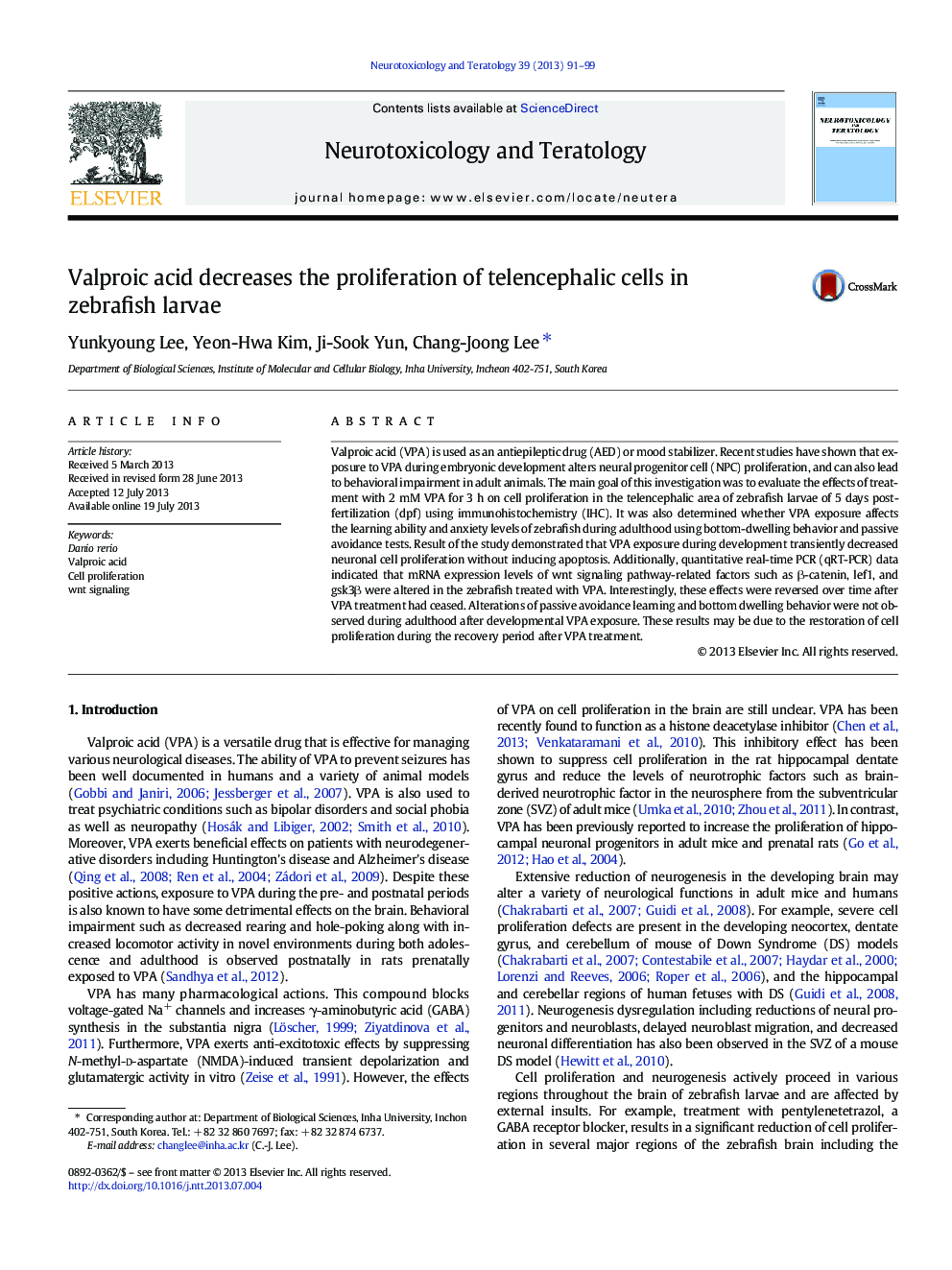| Article ID | Journal | Published Year | Pages | File Type |
|---|---|---|---|---|
| 2591095 | Neurotoxicology and Teratology | 2013 | 9 Pages |
•We evaluated the effects of VPA on cell proliferation in the telencephalic area of zebrafish larvae.•Cell proliferation was suppressed by 2 mM VPA treatment without inducing apoptosis.•Impairments of zebrafish behavior were not observed during adulthood after developmental VPA exposure.•mRNA expression levels of wnt signaling pathway-related factors were altered by 2 mM VPA.
Valproic acid (VPA) is used as an antiepileptic drug (AED) or mood stabilizer. Recent studies have shown that exposure to VPA during embryonic development alters neural progenitor cell (NPC) proliferation, and can also lead to behavioral impairment in adult animals. The main goal of this investigation was to evaluate the effects of treatment with 2 mM VPA for 3 h on cell proliferation in the telencephalic area of zebrafish larvae of 5 days post-fertilization (dpf) using immunohistochemistry (IHC). It was also determined whether VPA exposure affects the learning ability and anxiety levels of zebrafish during adulthood using bottom-dwelling behavior and passive avoidance tests. Result of the study demonstrated that VPA exposure during development transiently decreased neuronal cell proliferation without inducing apoptosis. Additionally, quantitative real-time PCR (qRT-PCR) data indicated that mRNA expression levels of wnt signaling pathway-related factors such as β-catenin, lef1, and gsk3β were altered in the zebrafish treated with VPA. Interestingly, these effects were reversed over time after VPA treatment had ceased. Alterations of passive avoidance learning and bottom dwelling behavior were not observed during adulthood after developmental VPA exposure. These results may be due to the restoration of cell proliferation during the recovery period after VPA treatment.
